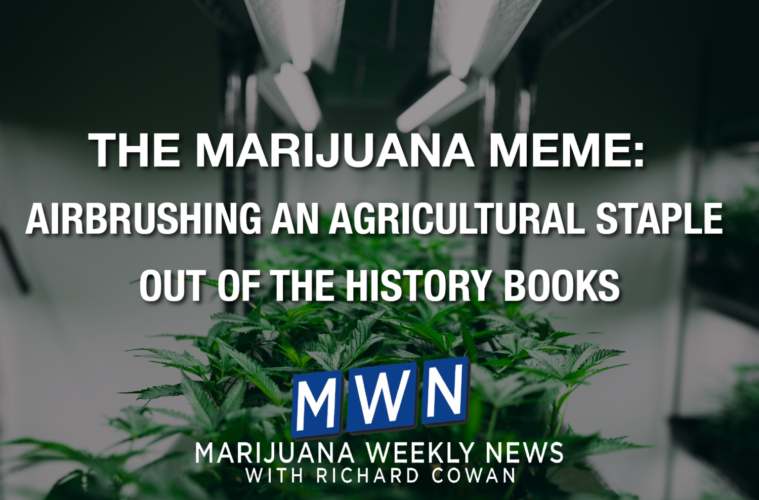Marijuana/Hemp/Cannabis is a fascinating subject. As marijuana (meaning a “recreational drug”) it has been “controversial” for almost 100 years. Before that, as hemp, it was mostly just an agricultural staple for thousands of years. It was used as fiber for rope and canvas sails, etc. It was also cheap cloth (“Hempen homespuns” – Shakespeare’s “A Midsummer Night’s Dream,” Act III Scene I).
And it was even a sacrament. See “Cannabis residue found in ancient Jewish temple links hallucinogens with religion”
And KANEH BOSM: THE HIDDEN STORY OF CANNABIS IN THE OLD TESTAMENT
Note: Bennett is an old friend.
So, there is obviously a lot to be learned from this plant. However, for the average person who isn’t a farmer and who doesn’t need to do medical research to buy some CBD or some other form of “medical marijuana,” the most important lesson may be about the “controversy” over the last century.
The racist origins of marijuana prohibition are almost comical (like a bad SNL skit). See Reefer Madness: The Racist Origins of Marijuana Prohibition
And this history is obviously relevant to the current controversy about racism and law enforcement.
Then, back in the notorious 1960s, “marijuana” was “rediscovered” by students of psychedelics, like Timothy Leary at Harvard, and then adopted by the “Hippies” just in time for it to be associated with opposition to the Vietnam War … and opposition to Richard Nixon who hated marijuana. (He thought that only “Jewish psychiatrists” wanted to legalize it.)
For a few years in the early 1970s, especially after the Shafer Commission called for it to be decriminalized, it appeared that the old laws would be repealed in a normal political process.
Then, instead, something really weird happened: It ceased to be a “serious subject,” and there is nothing more frightening to “journalists” than not being taken seriously. (Seriously) Don’t even think about it.
In 2005, following the shooting deaths of four Canadian police officers in a raid on a marijuana “grow op,” Dan Gardner, the great Canadian journalist, wrote in the Ottawa Citizen, “Let this be the end of scant attention, of dismissive comments, of news stories laced with trivializing puns and juvenile jokes.”
Gardner had voiced his frustration with what he had called the “snicker factor” in reporting on marijuana. I called it the “giggle factor.” In fact, almost the only time anyone mentioned cannabis, other than in prohibitionist propaganda, was usually in a joke.
And I would joke that there was more smoke than sex in closets. And a lot of hypocrisy. As Gardner noted, “In Official Ottawa, a remarkable number of people – including some renowned and powerful figures – think the war on marijuana is nothing less than ludicrous. And, truth be told, more than a few like to smoke an occasional joint.”
Very simply, no one would engage in a serious conversation about cannabis. That meant that no one would report on the number of arrests (now over 22 million). No one would report on the suppression of medical cannabis research in the U.S., still very difficult to get government approval. Even now, when “CBD” is sold almost everywhere, most people are still unaware of the absurd requirements for growing hemp. (The crop cannot have more than 0.03% THC.)
Unfortunately, this is a global problem. But in much of the world, it is definitely not a joke. The poorest countries that need cheap natural medicines, and the most corrupt countries that need fewer opportunities for police extortion, often look to the U.S. and the U.K. for leadership. Unfortunately, our “leadership” is still deferring to the same gang that is running the Drug War, still arresting African Americans on marijuana charges at four times the rate for whites, still blocking medical marijuana even though almost 90 percent of the American people want it legalized.
Really, you can’t be serious.
Richard Cowan is a former NORML National Director and co-founder of Real Tested CBD.
Advertising disclosure: We may receive compensation for some of the links in our stories. Thank you for supporting LA Weekly and our advertisers.

